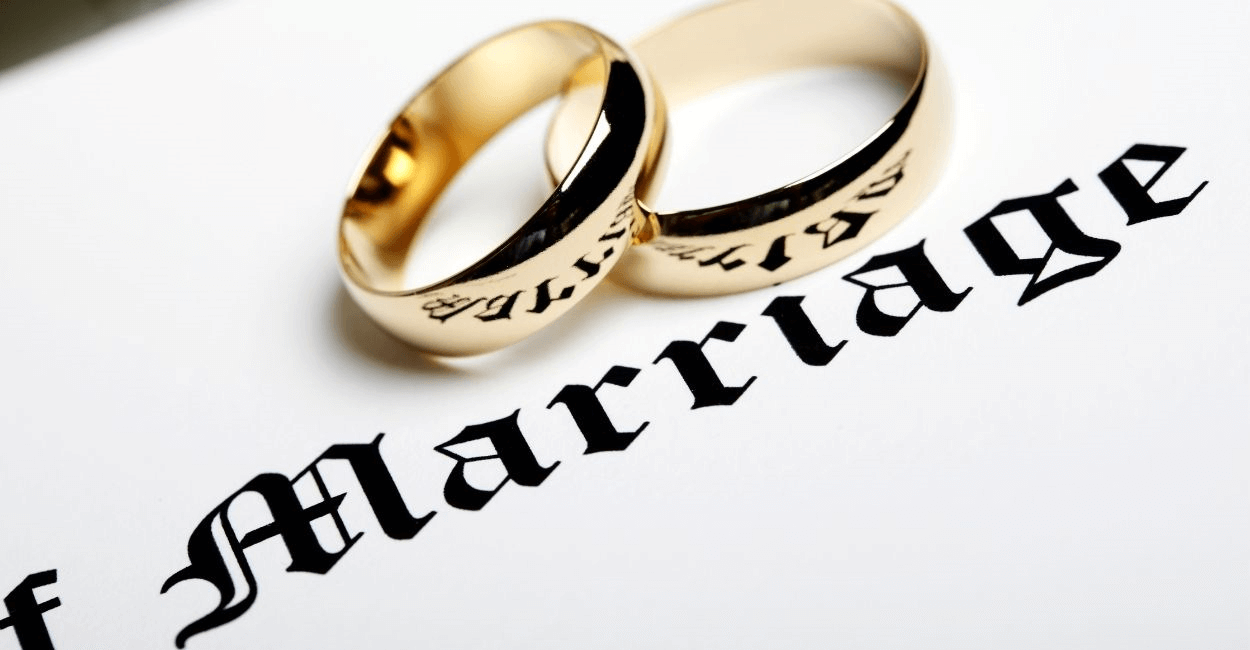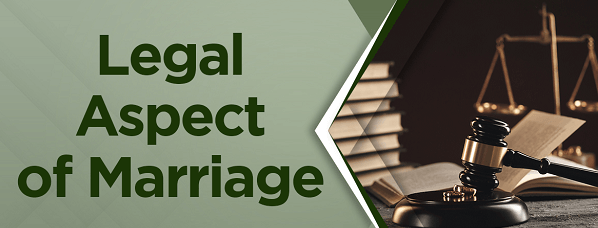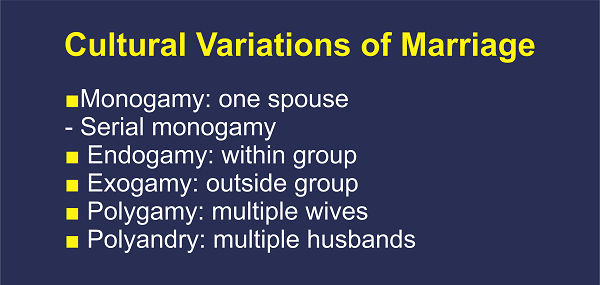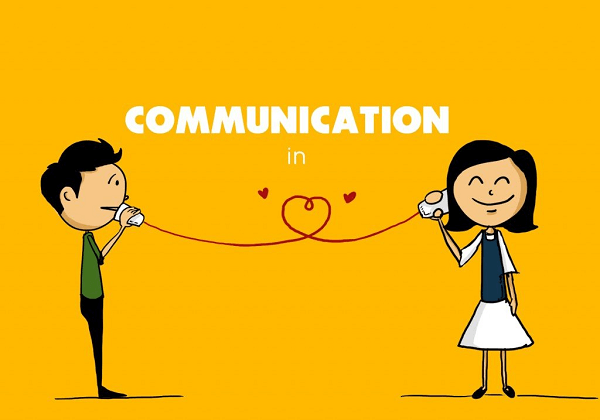Marriage DefinitionMarriageMarriage is a legal and social union between two people, often sanctioned by the rule of law, tradition, or religion. This relationship includes a dedication to support, love, and live as a pair. Marriage is generally accepted as a formal agreement between two people to spend their lives in a committed, intimate relationship. However, the precise definition of marriage may vary based on cultural and legal situations. Marriage is a legal and social institution that has been around for thousands of years. In most cultures, marriage is seen as a union between two individuals who are in love and want to spend the rest of their lives together. Marriage is often celebrated through ceremonies or rituals specific to different cultures and religions. 
Marriage is also viewed in many countries as a means of establishing a strong family unit and ensuring the survival of the human race through procreation. However, in modern times, the purpose of marriage has expanded beyond procreation and includes emotional, social, and financial support, as well as companionship. Marriage is a complicated and multifaceted idea that includes a variety of feelings, commitments, and duties. The emotional component of marriage entails a strong bond and affection between two people who have decided to dedicate their lives to one another. This connection frequently stems from a combination of chemistry and physical attraction and common interests, values, and beliefs. Marriage requires a commitment to stick by each other through good and bad times, to support one another financially, emotionally, and socially, and to strive together to create a fulfilling and enjoyable life. This commitment is frequently made official through contracts or rituals that bind the two people together. The responsibilities of marriage are especially important since they include a joint responsibility to look out for one another, raise children if desired, and give back to the community as a pair. These obligations include splitting up home chores, handling finances jointly, and making choices impacting both partners and the family. Marriage is a constantly evolving concept that has changed over time and across cultures. In some societies, arranged marriages are still common, while in others, the idea of marriage has expanded to include same-sex couples. Additionally, marriage has become less of a necessity in modern society. Individuals have more freedom to choose their life paths and may not feel the need to conform to traditional expectations. Significance of Marriage in Society
Marriage has numerous advantages, but it also has drawbacks. A healthy and fulfilling relationship takes a major investment of time, effort, and emotional energy, and keeping it going over time can be challenging. Nonetheless, marriage may be one of the most fulfilling and significant experiences of a person's life for those who are prepared to put in the work. Challenges Faced in MarriagesDespite the joys and benefits of marriage, it is not without challenges. Challenges are a natural part of any relationship, and marriages are no exception. Here are some of the common challenges that couples face in marriages:
In conclusion, several difficulties might test a marriage's resiliency and strength. But, couples may overcome these obstacles and forge a stronger and more successful marriage with time, open communication, and a desire to communicate. In overcoming these difficulties and fortifying the link between spouses, consulting a counselor or therapist might be helpful. The Legal Aspects of MarriageThe legal aspects of marriage are complex and vary across different jurisdictions. Still, some common elements include requirements for marriage licenses, legal recognition of the union, and the rights and responsibilities of spouses. 
Marriage Laws and Requirements There are a variety of marriage laws and standards that must be completed for a marriage to be legally recognized in different jurisdictions. The most basic prerequisite is a marriage license, which a government institution or a court typically provides. Obtaining a marriage license has several conditions, typically presenting identity, evidence of age, and residency. In addition to a marriage license, some jurisdictions may require couples to undergo premarital counseling or obtain a blood test to check for genetic diseases. In some jurisdictions, there may also be waiting periods before a marriage, such as between obtaining a license and the ceremony. Legal Recognition of Marriage For spouses to benefit from the legal rights and obligations accompanying marriage after it has occurred, the relationship must be officially recognized by the law. The government often issues a marriage certificate following the ceremony, serving as proof of the marriage. However, the legal recognition of marriage differs between jurisdictions. In some jurisdictions, common law marriage is recognized, which occurs when two individuals live together as a married couple for a certain period without obtaining a marriage license or having a formal ceremony. Rights and Responsibilities of Spouses The rights and obligations accompanying marriage are one of marriage's most important legal aspects. They include the right to own property, the opportunity to inherit property, and the power to make medical choices on a spouse's behalf. While property rights differ between nations, partners can often own property jointly or independently. Property obtained during a marriage may be considered marital property in some countries and be divided in the event of a divorce. Many jurisdictions have different inheritance laws, but in general, spouses have the right to inherit from one another in the event of death. Even if the deceased spouse did not write a will, some jurisdictions might contain provisions safeguarding a surviving spouse's claim to inherit a piece of the estate. Marriage also involves making decisions about your health. In most nations, couples can make medical decisions on the other's behalf in the event of illness or incapacity. Divorce and Annulment The legal procedure through which a marriage ends and the couple is no longer legally married, is called a divorce. Many jurisdictions have different divorce laws and procedures, but generally speaking, one partner must file a divorce petition and serve it on the other partner. While there are many reasons for divorce, adultery, cruelty, and irreconcilable differences are some of the more prevalent ones. An annulment is another legitimate way to end a marriage in some jurisdictions. In contrast to divorce, annulment renders the marriage unlawful or invalid from the start, as if it never took place. The various reasons for annulment include forced marriage, fraud, and marriages between close relatives. In conclusion, individuals need to understand the legal implications of marriage before entering into the union, as it can have significant legal and financial consequences. Changing Attitudes Towards MarriageMarriage has long been a cornerstone of society and is seen as the traditional and expected way to form a committed and legal union with a partner. However, in recent decades, attitudes towards marriage have shifted, with more and more people opting for alternative forms of committed relationships. These changing attitudes towards marriage can be attributed to various social, cultural, and economic factors.
In conclusion, changing attitudes toward marriage can be attributed to various social, cultural, and economic factors. The decreasing importance placed on marriage, the growing acceptance of alternative relationships, economic factors, and changing gender roles have all contributed to a shift away from the traditional view of marriage as a necessary and expected step in adulthood. While marriage remains a prevalent institution in many societies, attitudes towards it will likely continue to evolve and adapt to changing social and cultural norms. Cultural Variations in MarriageDifferent societies have different customs, traditions, and beliefs regarding marriage, which can influence everything from who is eligible to marry to what happens during the wedding ceremony to how the marriage is perceived by society at large. One important cultural variation in marriage is the age at which people get married. In some cultures, it is customary for individuals to marry at a very young age, sometimes even before they reach puberty. It is often the case in societies where arranged marriages are the norm, and parents or other family members play a major role in selecting a spouse for the individual. In other cultures, however, people wait until they are older before getting married. In many Western societies, for example, it is now common for people to delay marriage until their mid-to-late twenties or even their thirties as they focus on building their careers, traveling, and exploring their interests before settling down. 
Another variation in marriage across cultures is the nature of the relationship itself. In some societies, marriage is seen as primarily a practical arrangement between families, designed to secure economic or political alliances or to ensure the continuation of a family line. In such cases, the individuals involved may have little say in who they marry or may not even meet their future spouse until the wedding day. In other cultures, however, marriage is viewed as a deeply romantic and emotional bond between two individuals who love each other and choose to spend their lives together. In these societies, individuals are often given greater autonomy in choosing their partners, and the emphasis is on building a loving, supportive relationship rather than on fulfilling societal obligations. Another significant cultural difference is the place of gender and sexuality in marriage. Marriage is a purely heterosexual institution in many cultures, with rigorous gender roles and expectations for how each spouse should behave. While men are expected to provide for the family and make decisions, women may be expected to be submissive and obedient to their husbands. Yet, marriage may be more flexible and accommodating of various sexual orientations and gender identities in different cultures. For instance, same-sex marriages are now permitted in several nations, and gender norms are evolving toward equality in several cultures. Another cultural variety in marriage is the wedding ceremony itself. In certain cultures, weddings are large-scale affairs with numerous attendees, customs, and rituals. Some cultures may have more intimate weddings that concern personal family and close friends. There might also be a wide range of rituals and practices used. For instance, it may be a tradition for the bride and groom to exchange rings in some cultures, while in others, the importance of the gift or food exchange may be greater. The wedding ceremony may be religious in certain cultures, more secular in others, or sometimes not held at all. Finally, different cultures may have different views on what marriage is and how important it is. In several cultures, marriage is viewed as a significant rite of passage into adulthood, indicating the change from childhood to full community membership. In some cultures, marriage might be seen as a personal decision or a means of starting a family and establishing a strong, permanent relationship. While divorce is allowed and even anticipated in certain cultures when a marriage no longer works, it is viewed as a sacred covenant meant to continue forever in others. The Role of Communication in MarriageMarriage is a beautiful and lifelong commitment that involves two individuals who come together to build a life of love, trust, and support. But one of the most important components of a happy marriage is continual communication, which is necessary to keep a marriage healthy and joyful. The couple's connection will be strengthened, and potential disputes will be resolved with the help of effective communication. We will go into greater detail about the function of communication in marriage and why it is essential for a happy and successful relationship. 
Every relationship, including marriage, is built on communication. Couples can communicate their feelings, thoughts, and emotions with this tool. Building trust and mutual understanding between couples is facilitated by communication. It is a means of expressing one's love, care, and respect for another and acknowledging another's needs and preferences. Active listening is one of the most crucial communication components in a marriage. Active listening includes paying close attention to what your partner is saying and understanding the words' literal and implicit meanings. Active listening helps to create a climate of trust and open communication by demonstrating to your partner that you value their ideas and viewpoints. It is essential to give your partner your full attention when speaking, avoid interrupting them, and ask questions to clarify doubts or misunderstandings. You must also be open and honest with your partner to communicate effectively with them. Being honest is essential to a happy marriage because it fosters mutual respect and trust. Understanding and expressing your views and feelings to your partner honestly might assist in avoiding misunderstandings and arguments. It's critical to respectfully and constructively express your needs and desires to your partner. Your partner will be able to see things from your point of view and work to accommodate your needs as a result, which can assist in strengthening your relationship. In addition to verbal communication, nonverbal communication is crucial in marriage. Nonverbal cues such as body language, facial expressions, and tone of voice can communicate much more than words. For example, a warm smile or a gentle touch can convey love and affection without saying anything. On the other hand, cold or hostile body language can signal anger or resentment, damaging the relationship. Therefore, paying attention to nonverbal cues and communicating them effectively to your partner is essential. Communication is also essential to resolve any difficulties in the relationship. All marriages will inevitably experience conflicts, but how they are handled can impact the relationship's health and viability. Conflicts can be settled respectfully and constructively with the use of effective communication. It is speaking about your needs and feelings in a non-judgmental way, hearing what your partner has to say, and cooperating to find a solution that benefits both of you. Resentment might develop due to avoiding disagreements or stifling your emotions, which can eventually harm the relationship. Finally, communication is essential for maintaining a healthy and satisfying sexual relationship. Open communication about sexual needs and desires is crucial for building intimacy and trust between partners. Effective communication can help to prevent misunderstandings and misconceptions about sexual preferences and boundaries, which can lead to disappointment and frustration. It is essential to have open and honest conversations about sex, including likes, dislikes, and any concerns or problems that may arise. In conclusion, effective communication is critical to a healthy and happy marriage. It involves active listening, honesty, transparency, nonverbal communication, conflict resolution, and open communication about sexual needs and desires. Strong communication skills can help to build trust, mutual respect, and understanding between partners, which are crucial for a successful and fulfilling relationship. Couples who communicate effectively are likelier to stay together for the long term, enjoy a satisfying sex life, and weather the storms of life together. The Role of Marriage in Family LifeWhile marriage has evolved, it has remained a significant part of family life, providing a stable foundation for relationships, children, and the wider community.
However, the role of marriage in family life has not been without controversy. Some critics argue that marriage can be a restrictive institution, particularly for women, who may be expected to conform to traditional gender roles and sacrifice their goals and aspirations for the family's sake. In recent years, there has been a growing trend towards alternative forms of family life that challenge the traditional nuclear family structure. Many people choose to delay marriage, cohabitate without marrying, or form non-traditional family structures, such as blended families, single-parent households, and same-sex parent families. While these alternative forms of family life may offer greater flexibility and freedom, they can pose challenges, such as legal and financial complexities, social stigma, and lack of societal recognition. In conclusion, marriage's role in family life has many facets and complexes. While traditionally acting as the cornerstone of a secure family life, it has also come under fire for being too exclusive and lacking in diversity. Marriage as an institution is expected to continue to adapt and alter as society changes, reflecting changing attitudes, beliefs, and requirements. No matter what form it takes, the value of solid, healthy relationships and their part in family life will always be a fundamental component of human society. Marriage in the Modern WorldMarriage has undergone significant changes in the contemporary world. It is no longer a one-size-fits-all institution but has become more fluid, accommodating diverse perspectives and reflecting changing cultural, economic, and social realities. This essay examines the changing nature of marriage in the contemporary world by exploring how marriage has evolved over the years, the factors driving these changes, and the implications for individuals and societies. Marriage has historically been a patriarchal institution that subordinated women to men, controlled sexual and reproductive activity, and solidify family ties. But, as cultures have become equal, democratic, and individualistic, marriage has become less about social conventions and more about personal preference, intimacy, and self-fulfillment. Instead of its legal or religious features, marriage nowadays is increasingly characterized by its emotional, psychological, and experiential dimensions. The increase in individualism is one of the main factors in changing marriage. Previously, people married to retain family honor, meet social and economic expectations, or forge family ties. But, as people have grown more autonomous, mobile, and powerful, they are less constrained by societal standards and more intent on following their interests and objectives. The emphasis on personal fulfillment, intimacy, and compatibility in marriage has increased due to this trend toward individualism. The shifting gender roles and expectations influence how marriage is changing. Marriage was a gendered institution that assigned men and women different duties, rights, and responsibilities. Women were expected to be carers and homemakers, while males were expected to provide for their families needs and defend them. But as women's access to political, economic, and educational opportunities has increased, they've questioned long-held gender roles and norms and pushed for more equality and freedom in marriage. Marriage is increasingly viewed as a relationship between equals in which both partners share the duties and advantages of married life. The demographic and technological shifts have an impact on the way that marriage is changing as well. Due to demographic shifts like urbanization, migration, and aging, traditional family structures have been changed, as well as new types of families and various family activities. The ability to meet, interact, and sustain relationships with others inside and outside marriage has increased due to technological advancements like the internet, social media, and mobile communication. Cohabitation, same-sex marriage, open marriage, and long-distance partnerships are some new relationship types due to these changes. The implications of the changing nature of marriage are far-reaching, both for individuals and societies. On the one hand, the increased emphasis on personal fulfillment, intimacy, and compatibility has led to greater satisfaction and stability in marriage, as couples are more likely to choose partners who share their values, interests, and goals. It has also led to greater autonomy and self-expression for both partners, as they can pursue their interests and aspirations while maintaining their commitment to the relationship. On the other hand, the changing nature of marriage has also led to greater complexity and uncertainty in relationships as couples navigate the challenges of balancing individualism and commitment, intimacy and independence, and stability and change. The emergence of new relationships has also challenged traditional norms and values, raising questions about the meaning and purpose of marriage in the contemporary world. In conclusion, the modern world's evolving view of marriage mirrors the larger social, cultural, economic, and technical transformations that have reshaped our communities. The institution of marriage is no longer permanent and unchanging; instead, it is a dynamic and changing relationship that represents the various needs, goals, and expectations of people and society. The changing nature of marriage presents opportunities and problems for individuals and societies as they seek to manage the complexities and uncertainties of modern life. The Future of MarriageMarriage has been a crucial social structure in human society for thousands of years, serving as the foundation of families, communities, and even civilizations. But much like many other aspects of modern-day life, the idea of marriage has recently undergone a rapid evolution. The marriage of the future is likely to appear substantially different from the past due to the introduction of new technologies, evolving societal standards, and changing attitudes about traditional gender roles. In this article, we shall look at major developments and marriage predictions. One of the most significant changes we are likely to see in the future of marriage is a shift towards greater gender equality. In many traditional societies, marriage has been characterized by a clear division of labor between men and women, with women expected to be the primary caregiver and homemakers. However, in modern societies, women are increasingly pursuing careers and are less willing to accept this traditional role. As a result, we will likely see a shift towards more egalitarian marriages, with men and women sharing household and childcare responsibilities more equally. The rising acceptability of non-traditional types of partnerships is another development that will likely influence how marriage develops. The number of people opting to live together without getting married or starting non-monogamic relationships has significantly increased in recent years. This tendency will likely continue as people become increasingly receptive to alternate intimacy and relationships. Polyamory, open partnerships, and consensual non-monogamy may fall under this category. In the future of marriage, technology is also expected to have a big impact. There will probably be an increase in the number of new types of virtual connections as people rely increasingly on technology for social interaction and communication. It might involve online marriage counseling, virtual reality simulations of long-distance relationships, and even virtual reality dating. Via video conversations, social media, and other digital tools, technology may also make it possible for couples to remain connected even when they are geographically apart. Growing acceptance of same-sex couples is another development that will probably influence how marriage develops. Same-sex marriage is legal in many world regions, and same-sex couples are becoming more well-known and accepted. As perceptions about LGBTQ+ people change to become more accepting and inclusive, this trend will likely persist. The rising trend of people delaying or rejecting marriage entirely is one potential threat to marriage in the future. It might be brought on by several things, such as a need for autonomy and personal freedom, shifting societal standards, and financial instability. As a result, there might be a decline in marriage rates in the future or a trend toward marriage at older ages. Last, shifting perceptions of marriage as an institution will probably influence its development. Divorce was shamed and discouraged in the past because it was considered a permanent commitment. Divorce has become increasingly common and socially acceptable in modern societies, nevertheless. It could result in moving towards more adaptable marital arrangements, such as short-term marriages or contracts for future unions, which let partners rethink and renegotiate their commitment as time passes. In conclusion, the future of marriage will likely be shaped by various factors, including changing gender roles, the acceptance of non-traditional relationships, the role of technology, and evolving attitudes towards institutions. While some of these changes may challenge the traditional concept of marriage, they also offer opportunities for greater inclusivity, flexibility, and autonomy. Ultimately, the future of marriage will be shaped by the collective choices and values of individuals and society.
Next TopicMental Health Nursing Definition
|
 For Videos Join Our Youtube Channel: Join Now
For Videos Join Our Youtube Channel: Join Now
Feedback
- Send your Feedback to [email protected]
Help Others, Please Share










